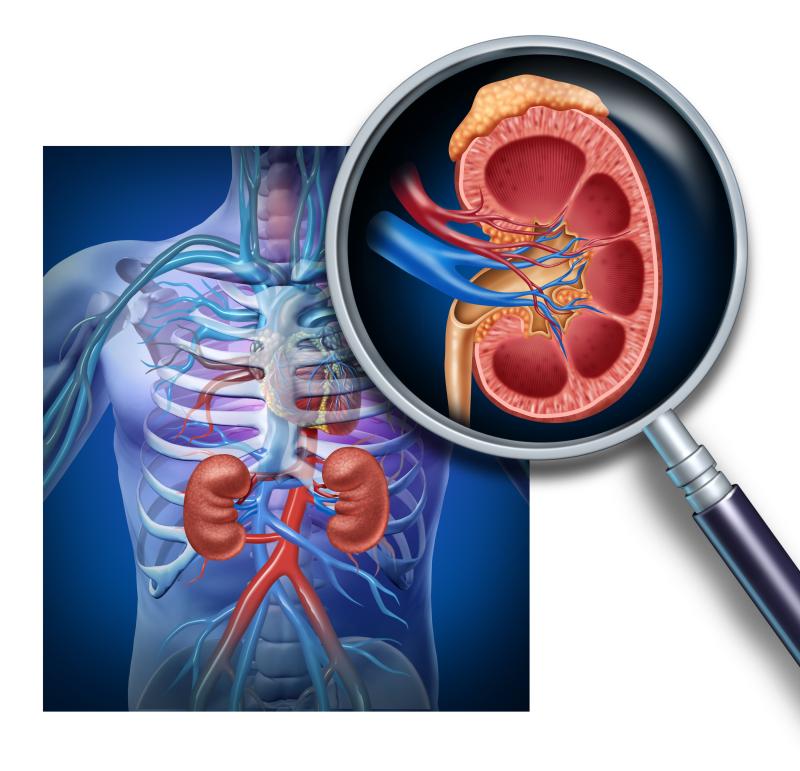
Patients with mild-to-moderate chronic kidney disease (CKD) may benefit from folic acid treatment, which helps reduce the likelihood of CKD progression, especially among those with high vitamin B12 levels, as shown in a study.
Researchers conducted a posthoc analysis of 1,374 hypertensive adults with mild-to-moderate CKD and vitamin B12 measurements at baseline from the kidney disease substudy of the China Stroke Primary Prevention Trial (CSPPT), conducted in 20 communities in Jiangsu province, a region with low folate consumption.
Patients were randomized to receive enalapril 10 mg alone or in combination with folic acid 0.8 mg. Mean baseline estimated glomerular filtration rate (eGFR) of the population was 86.1 mL/min/1.73 m2. Median treatment duration was 4.4 years.
The primary outcome of CKD progression was less likely to occur with enalapril–folic acid treatment than with enalapril alone among patients with higher baseline vitamin B12 levels (≥248 pmol/L; odds ratio [OR], 0.17, 95 percent confidence interval [CI], 0.07–0.40). This difference was not observed among patients with lower baseline B12 levels (<248 pmol/L or metabolic B12 deficiency; OR, 1.21, 95 percent CI, 0.51–2.85).
The interaction between vitamin B12 level and folic acid treatment was significant (p=0.001).
Progression was defined as a decrease in eGFR of ≥30 percent and to a level of <60 mL/min/1.73 m2 if baseline eGFR was ≥60 mL/min/1.73 m2; or a decrease in eGFR of ≥50 percent if baseline eGFR was <60 mL/min/1.73 m2; or kidney failure.
Researchers acknowledged several limitations to the study, including the analysis being posthoc in nature and the event rate being low.